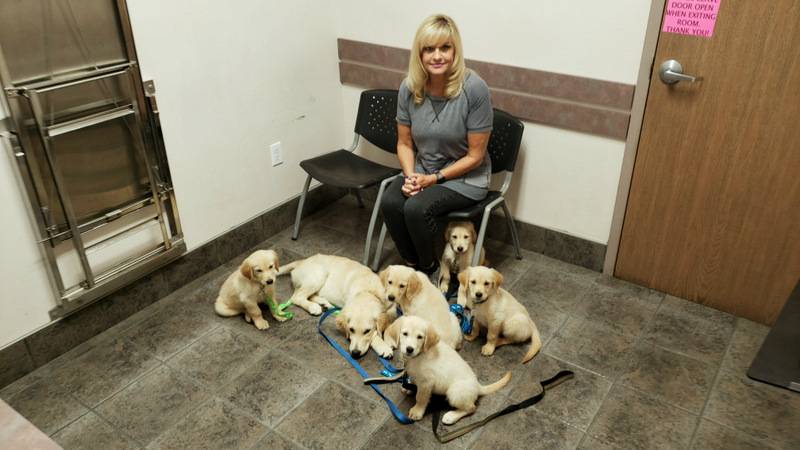Dog For Depression
Owning a dog offers a unique sense of companionship and loyalty. Dogs have a natural way of influencing our lives and happiness levels. Adding a four-legged family member to your home can also be helpful for your mental health.
This is where service dogs, emotional support dogs, or therapy dogs come in. They can offer a long-lasting solution for those suffering from symptoms of depression.
Read on to learn more about how getting a dog for depression can help benefit your wellbeing.
1. Dogs Have a Natural Influence on Hormone Production
Many people turn to a depression therapy dog to help improve their moods. These dogs get trained to evoke a positive emotional response in those around them.
The simple act of petting a dog can increase feel-good hormones in your brain. This results in higher levels of oxytocin, serotonin, dopamine, and prolactin. These hormones work to help you control your emotions better and help you feel happier.
Cortisol is a hormone responsible for feelings of anxiety and depression. Interacting with your dog can help reduce this hormone.
A service dog for depression may be able to pick up on increasing stress hormones in their owner. Then they can react to them to help them calm back down. These dogs also get trained to remove you from a situation that may trigger depression.
Dogs also evoke feelings of calmness and content in their owner. This works to lower blood pressure and heart rate. Dogs have a natural ability to do this, unlike using prescription drugs.
Dogs have helped people with postpartum depression, bipolar disorder, and panic disorder. Those with OCD and PTSD can also find relief with a service or support dog. They can help a person get through psychological trauma.
Dogs aid people in learning to trust and open themselves back up again. A service dog can be a helpful reminder in taking your daily depression medicine. These special dog training methods can help people cope with depression.
2. Dogs Combat Feelings of Loneliness
Feelings of loneliness and isolation let in depressive thoughts and anxiety triggers. Service dogs for depression and anxiety help their owners avoid these negative emotions.
A dog helps to promote social interaction with others. This can be with neighbors walking their dogs or people playing in a nearby park. These opportunities offer a chance to connect with others and combat loneliness.
An owner will feel less isolated when doing daily activities with their dog. This sense of companionship brings about better self-esteem. It also makes it easier for the owner to keep the communication flowing.
Having a dog sleep in your room at night may help you to fall asleep better. As a lack of sleep can wreak havoc on our mental health.
Dogs can even stop you from self-medicating as a way of curbing depression. This can make it less likely that you will turn to drugs or alcohol. Stronger mental health will also bring about a lower risk of suicide.
There are different benefits of having a psychiatric service dog or therapy dog. Service dogs have permission to travel into public places with their owners. This is due to special training for public access.
Having a therapy dog may help you to engage better with others. These dogs can visit certain locations to help people in need. You’ll find them in hospitals, nursing homes, and special-needs schools.
3. Dogs Encourage Daily Exercise
Exercise acts as a natural antidepressant. It works to produce endorphins and help to stabilize the mood. This is why dogs used for therapy make excellent workout partners.
It helps to get in a daily fitness routine of even 30 minutes a day. Take your dog for a walk or to the park to play catch. Fresh air combined with physical activity can help boost your mental health.
This type of exercise helps to ward off depressive thoughts. It can even improve your blood circulation and immune system.
Being outdoors provides a healthy dose of vitamin D. Having a vitamin D deficiency can cause depression. So being outdoors with your dog can make a significant impact on your mental health.
4. Dogs Offer a Sense of Purpose
There are many responsibilities when caring for your dog. This includes feeding, walking, and bathing your dog.
Dogs give you important activities to focus on. This can help you to feel more productive and needed. Having a dog rely on your for love and care can battle depressive thoughts.
Dogs can even help people who suffer from agoraphobia. This mental health disease causes people to have trouble leaving home. Some people with more severe anxiety or depression may also have these symptoms.
You’ll develop a strong bond with your dog, built on unconditional love and trust. This can help a person who struggles with giving and receiving affection. A dog can also help you with your personal growth path to opening up to others.
There are a few different methods for how to get a therapy dog for depression. Yet, it’s important to decide which type of service dog is best for your lifestyle.
Having a severe mental health disability may call for a psychiatric service dog. Those who suffer from this type of disease may have trouble living their daily life.
These dogs get trained to carry out certain tasks to help their owners. They can also notice an owner’s mood changing and can act on it.
Training a Dog for Depression
A specialized dog for depression can improve your lifestyle and wellbeing. They can help improve depression symptoms and anxiety triggers.
With the right training methods, any dog can help you cope with depression. Yet, it’s also key to select the right type of service dog for your needs. Learn more about how you can enhance your life with a service dog.






